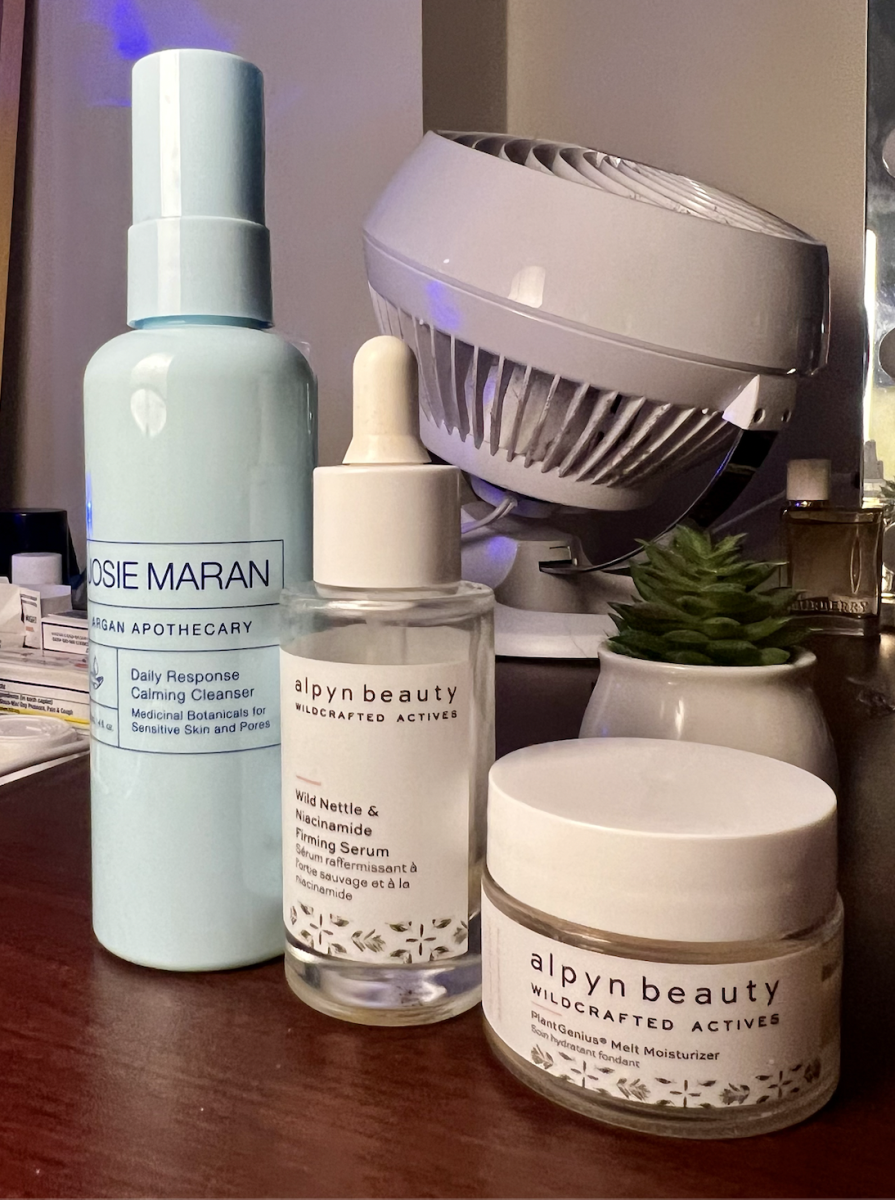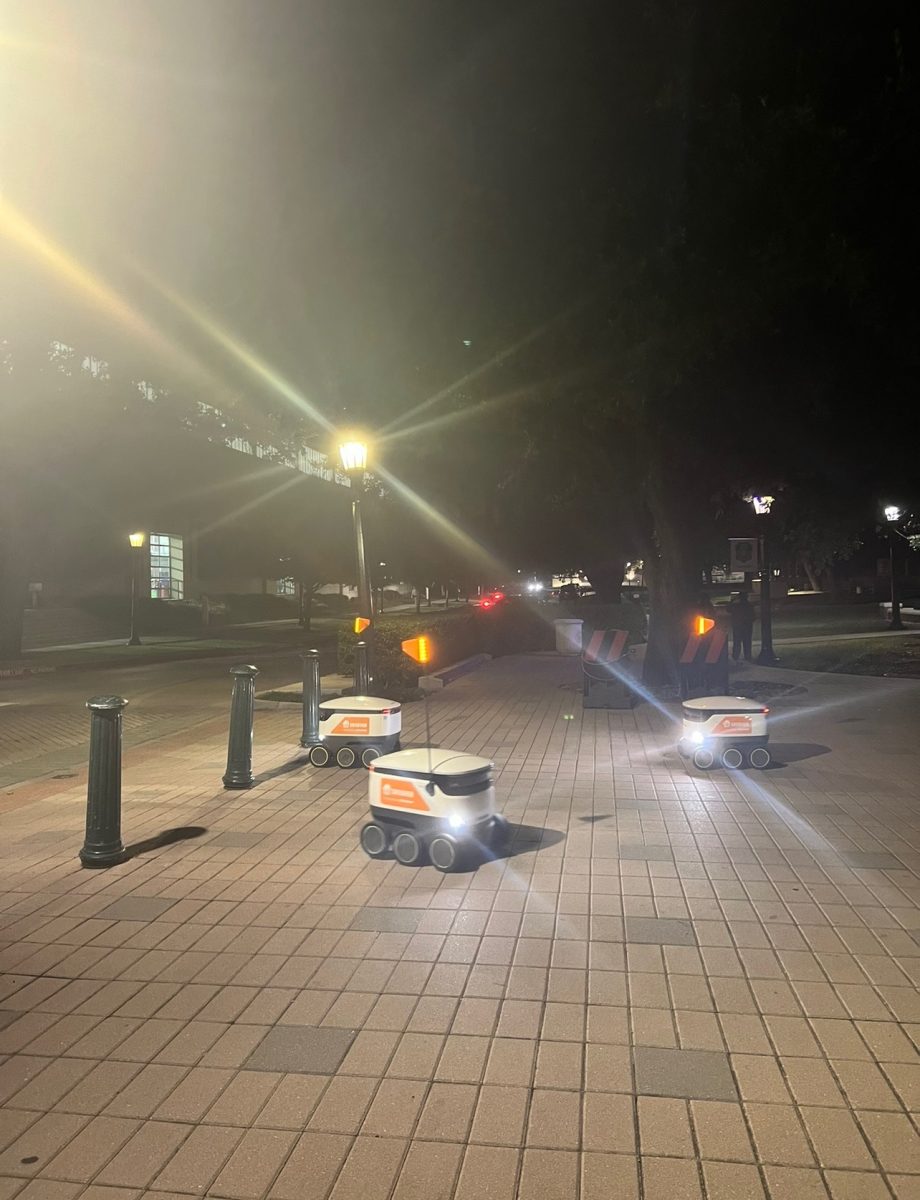As the first rays of sunshine began to shine through the windows of Fondren Library, Abby Argo was still studying after pulling an all-nighter. She has her two hardest exams on the first day of finals and has no time to waste. She’s stressed, tired and Christmas break has never felt further away.
This seems to be the trend in college. Everyone is stressed because of class, jobs, internships and relationships. Near the end of every semester with finals approaching and papers due, you’re lucky if there is time to sleep or even shower. First-years go through their own sort of hell as they face their first college finals. On the other end, seniors are stressed out as they hit the pavement in search of jobs and prepare to leave the SMU bubble.

Meaghan Poulin is a senior double major in communication studies and public relations, who is stressing about how to balance her senior workload with an internship.
“I would definitely say completing my senior thesis and working at my internship during the school year,” said Poulin. “The uncertainty after graduation can also be really stressful.”
Amy Cooley is a first-year feeling the pressure as due dates creep closer.
“I’m most stressed about finals,” said Cooley, an advertising major. “Or more so my final writing assignment which is just a really big paper due soon.”
So how do you get through the stress of finals? And with the holidays coming up how can you cope with all the extra tension that comes from travel, family drama, holiday pounds and J-term?
Dr. David Crow is a psychology professor at SMU. He explained the scientific reasons for why stress has such a negative effect on us. It overwhelms our bodies and releases a hormone called cortisol. Cortisol suppresses our immune system, which makes those who are stressed more susceptible to becoming ill. Crow’s advice is to try and procrastinate less, exercise more and write about the stress you’re facing in a journal or in a note to yourself.
“The pressure of the time frame gets students because everything happens at the end of the semester,” said Crow. “Writing emotionally about the stress in your life has been proven to lower stress levels.”
Stress often results from negative life experiences or life events and is a well-known contributor to mood, mental disorders and suicide risk.
Everyone has his or her own way to handle stress. Some people like to go to Dedman and workout, or hunker down in their dorm and watch an episode or two on Netflix.
“I try to give myself a mini vacation every day, whether it’s going for a run, grabbing a Starbucks or reading a few Buzzfeed articles,” said Poulin. “I think it’s really important to give your mind a break to increase productivity.”
Alan Winkelman is a junior environmental science major that plays video games to relieve stress and Cooley likes to go running. Working out also helps combat anxiety over gaining the “Freshman 15”, an expression that is used to describe the weight gain that happens to most freshmen when they enter college.
“I’m a little worried about the Freshman 15 after Thanksgiving break and with finals coming up, which means stress eating,” said Cooley.
Sara Schaffer is a junior art history and English major. The pressure of the real world is beginning to surpass the pressure finals used to bring.
“Finals obviously are a big thing, but there’s more stress as a junior because the pressures of the real world are creeping in,” said Schaffer. “It makes me nervous about what I’m going to be doing post-college because I am not sure about that yet.”
SMU has counseling and psychiatric services for students who need it. From individual, personal counseling to group counseling, the Health Center works to accommodate everyone’s individual needs.
Mental disorders affect a large percentage on college students. Stress, lack of sleep and unpleasant life events all contribute to feelings of despair and sadness. Depression is more common than most think, especially among college-aged people. 14.5 percent of college students have depression and 30.3 percent have “felt so depressed it was difficult to function” at least once in the last 12 months. For more information please visit the Suicide Prevention Resource Center website.
Please visit the SMU Health Center website here for more information on CAPS or call 214-768-2277 to schedule a triage appointment.
Tips to Avoid Stress
The key way to handle stress, according to HelpGuide.org, is to identify the sources of stress in your life and then learn how to cope with them.
• Avoid unnecessary stress
• Alter the situation
• Adapt to the stressor
• Accept the things you cant change
• Make time for fun and relaxation
• Adopt a healthy lifestyle
For more information and tips on handling stress visit helpguide.org.













